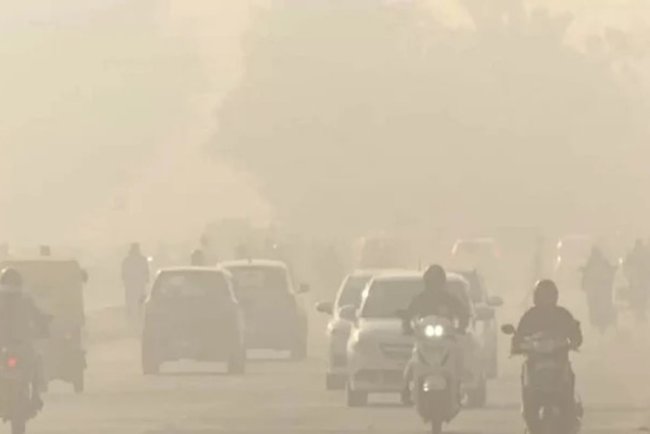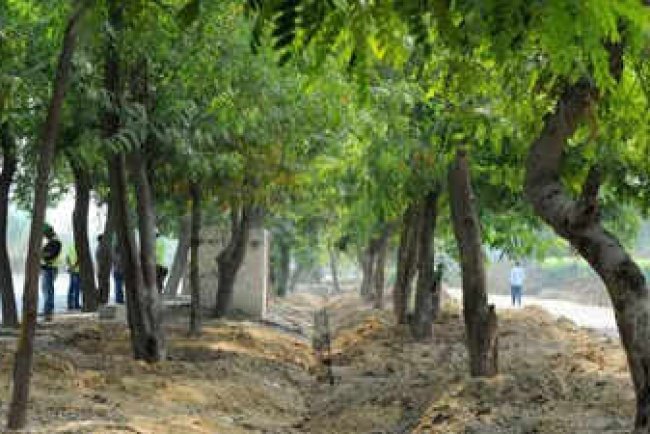Arctic Faces Irreversible Changes As Global Temperatures Near 2.7°C Threshold, Study Warns
These worrying changes were found in a new study, released by Science on February 6, 2025, making the case for urgent climate action to prevent more damage

With rising global temperatures, irreversible changes in the Arctic are already having catastrophic effects on permafrost, sea ice and the Greenland Ice Sheet. And if global warming reaches the projected top of 2.7°C — which is what is expected to happen under current international climate pledges — then summer sea ice will all but disappear completely, ice sheets will melt faster and permafrost will thaw broadly, according to scientists.
Such worrying changes were found in a new study, released by Science on February 6, 2025, making the case for urgent climate action to prevent more damage. The review, led by Julienne Stroeve, professor, Centre for Earth Observation Science, University of Colorado, senior research scientist, NSIDC).
Stroeve and colleagues re-interpreted the Intergovernmental Panel on Climate Change's (IPCC) Sixth Assessment Report data and brought new insights to main information about the change of three key elements of the Arctic: sea ice, Greenland Ice Sheet, and permafrost.
Key Findings of the Study
Very High Air Temperatures All Year Round: With 2.7°C of global warming, Arctic air temperatures will be warmer than during pre-industrial times virtually every single day of the year. It is an across-the-board temperature increase that will have a drastic impact on the ecosystem, infrastructure, and inhabitants of the exposed area.
Loss of Summer Sea Ice: Loss of sea ice in the Arctic Ocean will be experienced during certain summer months. Loss of sea ice is most crucial to Arctic wildlife since it destroys essential habitats and hunting grounds for seals and polar bears.
Additional Greenland Ice Sheet Melting: The research indicates that regions of the Greenland Ice Sheet with a surface temperature above 0°C will increase substantially, thereby adding to increased global sea levels. On average, in comparison to the pre-industrial period, ice sheet coverings with more than a month-long surface temperature above 0°C will be four times larger in area, speeding up melting and raising sea levels.
Critical Permafrost Loss: The most important parameter that keeps the Arctic environment as it is foreseen to lower by 50% of the pre-industrial level by the beginning of the twenty-first century. Thawing of the permafrost is a very serious issue as its release of huge quantities of methane, one of the extremely potent greenhouse gases, into the environment will propagate global warming into more extreme situations.
Consequences of These Trends
The Arctic is itself changing at a pace that has worldwide ramifications outside the Arctic circle. Oceans and Greenland glaciers' melting ice would have an impact on wildlife and man in the area as well as have a fundamental effect on sea levels that will pose a low-lying threat to coastal settlements worldwide. Melting permafrost will release enormous amounts of carbon, also furthering the climate change process.
This article calls to call for action immediately on global warming and reducing greenhouse emissions immediately. International policy today is targeted at limiting warming to under 2°C, but simulations predict that even that will be insufficient to answer the challenge, with the Arctic to probable catastrophic change.
The report urges the limiting of emissions and safeguarding Arctic ecosystems. Unless greenhouses are controlled in the next few years, the Arctic will continue warming at an accelerating pace and will experience changes that could be irreversible. The report urges action anywhere in the world to limit the extent of changes and encourage preservation of the Arctic environment, societies, and wildlife.
The Arctic region is already responding to the international climate crisis and experiencing radical shifts. The Arctic will experience rapid changes that will redefine its environments, ecosystems, and residents by 2.7°C warming. The observation recorded by the review paper charges the world with acting now so as to be able to reverse emissions and break the long-lasting effects of global warming. Unless the international community acts forcefully now, the destiny of the Arctic will be locked in by rising temperature rise, loss of crucial ice cover, and general environmental deterioration.
What's Your Reaction?

















